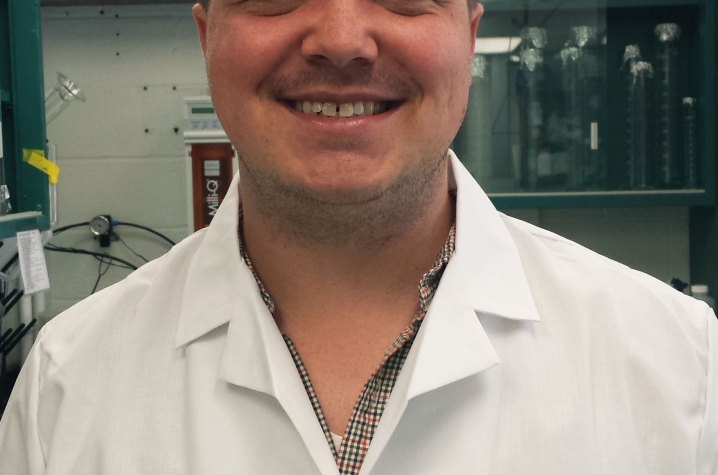Understanding Risks, Refining Treatments Can Reduce Heartbreak of Infertility

This column first appeared in the June 5 edition of the Lexington Herald-Leader.
LEXINGTON, Ky. (June 6, 2016) — About 15 percent of couples in the United States suffer from infertility, which is when a couple has tried to become pregnant for a year without success. Infertility comes as a shock to many couples that have spent years preventing pregnancy.
The inability to become pregnant leads to long-lasting and detrimental effects on a woman’s physical and emotional wellbeing. These detrimental effects include a decreased quality of life as indicated by increased levels of stress, impairments in physical and mental health, and diminished social functioning when compared to fertile women. Research has shown that being diagnosed with infertility has similar emotional and life-altering impacts as being diagnosed with cancer or a heart attack.
Infertility is a major public health concern as the diagnosis and treatment of infertility is estimated to cost society over $5 billion annually. For many couples, equally devastating is the realization that their health insurance does not cover infertility treatment, and all their medical costs must be paid out-of-pocket. It is critically important to understand the causes of infertility in order to refine treatments, decrease the costs associated with infertility, and benefit the overall wellbeing of those suffering from infertility.
The most prominent underlying causes of female infertility are defects in ovulation, or release of the egg from the ovary. The exact cause for defects in the woman’s reproductive tract is not entirely understood, but several risk factors are associated with infertility, including:
· Untreated sexually transmitted infections
· Pelvic inflammatory disease
· Certain cancer treatment regimens
· Endometriosis
· Polycystic ovarian syndrome
· Exposure to environmental toxicants
· Lifestyle factors such as smoking, drug use, excessive alcohol use, abnormally high levels of stress, and extreme weight gain or loss
However, the single most significant contributing factor to female infertility is age. Fertility greatly declines with age due to the natural depletion of eggs within the ovary and decreased quality of the remaining eggs, leading to increased chances of miscarriage. Further, the potential health of the child can be impacted by a woman’s age due to genetic abnormalities in the eggs from older women. As women in today’s society are delaying child birth for personal, professional and financial reasons, age becomes an important factor contributing to infertility.
To combat infertility, women can undergo treatment from a trained infertility specialist, which includes infertility testing, drug treatment to aid in ovulation, surgery to repair abnormalities in the reproductive tract and assisted reproductive technologies (ART), which includes the commonly used in vitro fertilization (IVF) procedure. In ART, the egg is fertilized outside the body before being placed back into the woman’s uterus. Unfortunately, the challenges of infertility treatments, specifically ART, are that success rates are low (approximately 56 percent) and decline with age.
Scientists are continuing to refine and improve ART methods, such as working to optimize dosing regimens of the drugs that aid in ovulation, refining the conditions in which fertilization takes place outside the body, enhancing the procedures used to evaluate embryo quality prior to placing the embryo back into the woman, and investigating ways to preserve the fertility of cancer patients by using ovarian cryopreservation. In our laboratories here at the University of Kentucky, we are determining precisely how ovulation is controlled in women and are identifying novel factors that drive ovulation. Each of these advancements aims to improve efficacy, while decreasing the time and cost of infertility treatments.
Patrick Hannon is a post-doctoral researcher in the UK Department of Obstetrics and Gynecology.
Media Contact: Elizabeth Adams, elizabethadams@uky.edu




